The Manchester Writing School prepares to start a new term after a successful year.
By Pierangelly Del Rio
After a bid coordinated by a consortium including Manchester Metropolitan University alongside other prestigious institutions, writers, publishers and organisations, Manchester was declared the 26th UNESCO City of Literature. The city now forms part of a worldwide Creative Cities network, which pursues excellence in literature on a local level.
The Manchester Writing School, led by Poet Laureate Professor Carol Ann Duffy, continues to elevate the city’s cultural status with a number of ambitious degree programmes, outreach activities and short courses. This year, the Manchester Writing School welcomes internationally acclaimed authors Laura Barnett, Jennifer Nansubuga Makumbi, Sarah Butler and Oliver Harris, as well as hundreds of undergraduates and returning students.
aAh! catches up with a number of former creative writing students at Manchester Metropolitan to discuss their creative work and their experiences as members of the Manchester Writing School.
Elisabeth Sennitt Clough
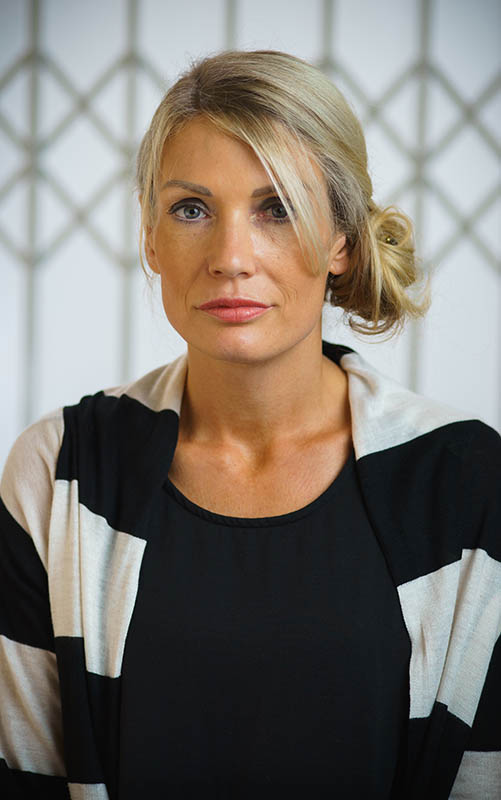
Elisabeth Senitt Clough is a dual-nationality British/American poet who grew up in Cambridge, England. Her poetry has been published in the Bloodaxe anthology, Mslexia, Rialto, Hallelujah for 50ft Women, Stand, Other Poetry and Ink, Sweat and Tears. Glass, her debut pamphlet, won the inaugural Paper Swans Pamphlet Competition and the 2017 Saboteur Award for Best Poetry Pamphlet.
Elisabeth’s first collection, Sightings, has been praised by Pink Pantry: “She brings her subjects alive through her use of rich sensory imagery and lines that are so precise they make your heart ache. This the kind of poetry you can’t help walking away from with goose flesh all over your body for its honesty, its rawness and the poet’s disarming willingness to bare all.”
When asked about the elements of honesty, rawness and rich imagery in her work, Elisabeth immediately recalls her place of origin, The Fenlands. She said, “Those adjectives: ‘honest,’ ‘raw,’ ‘fragile’ and ‘rich’ also apply to the unique landscape of the Fens (where I’m from). As such I would describe my debut collection as articulating the trauma of the land through the experience of the people who reside there (to include myself) – ultimately, I would describe it as book about the desire for emotional truth.”
The Fenlands, to where Elisabeth returned recently, is thus a central part of Sightings, becoming its orbit.
“The characteristics of my region function as a springboard for my imagination and feel important enough for me to articulate. For example, its misuse, through over-farming, has prompted me to draw parallels between the exploitation of land and that of people.”
For Elisabeth, the style and recurrent themes developed through constant writing.
“My style and themes developed very organically. The more I wrote, the more I recognised certain patterns in my work – for example, a recurring pyschogeographical element, a regional slant, an interest in female concerns.
Also, I grew up in a region where story-telling was very prevalent. My step-father could not read, but he used to tell me exaggerated stories and spoke often about local lore, so I am convinced that the narrative side of my work derives from there.”
Despite her close link to the Fenlands, Elisabeth has lived and worked in several countries such as Panama City, Florida; Fresno, California; Reykjavik, Iceland; and Maastricht, Netherlands. She admits the experiences living in these places influenced her poetry.
“I didn’t start writing poetry until I moved to Fresno. There I was very much inspired by the ‘Fresno School’ – poets who were influenced by Philip Levine. Geographical distance also enabled me to write more comfortably about my home, as well as offering me perspective.”
After obtaining a PhD from the Open University in 2010, Elisabeth returned to study in 2013, undertaking an MA in Creative Writing with Teaching at Manchester Metropolitan University. She recalls the support received during this time.
“I can say without hesitation that it was the knowledge, encouragement and support I received during my MA which enabled me to have a pamphlet and debut collection published within that year. The entire three-year experience was incredibly rich, offering a multitude of opportunities, but 2016 was an exceptional year: I was fortunate enough to be awarded the Michael Schmidt Prize for my MA portfolio (which went on to become my debut collection) and one of those poems appeared in the Forward Prize Anthology.”
Elisabeth is currently working in the final editing of her second full collection (funded by Arts Council England), At or Below Sea Level – due for publication soon.
Natalie Burdett
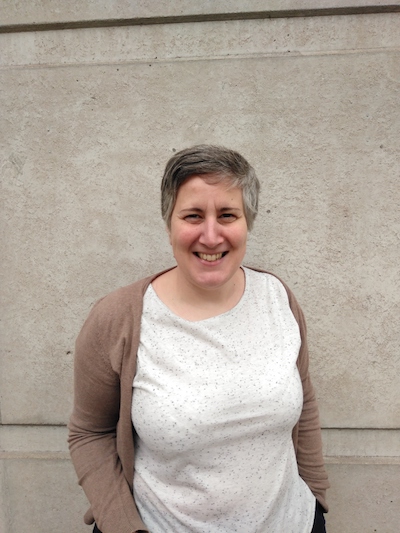
Natalie Burdett is a poet from the West Midlands whose work explores urban space, community and environment. Her poems have been published in several magazines and anthologies including A New Manchester Alphabet (Manchester Metropolitan University), This is Not Your Final Form (The Emma Press), and The Poetry of the Black Country (Offa’s Press). Natalie’s work has gained widespread recognition having been shortlisted for The London Magazine and Bridport prizes.
Urban Drift, Natalie’s first pamphlet published by Smith/Doorstop Books, explores the delicate negotiations through which we relate to place and those around us. Reviewers for Urban Drift praised the sense delicacy and the images evoked: “When Natalie Burdett turns the brilliance of her attention on something – and it could be anything, from the wall of an old warehouse to a school blazer – she makes the reader see it with clarity and immediacy, and recognise it as if for the very first time.”
While trying to find her own definition for her work, Natalie comments that her aim is to celebrate and not romanticize the places that have had and impact in her life. “I’d say that the poems are fairly ‘quiet’ but tightly packed with observation and sometimes subtexts, so they’re not always straightforward!”
The interest in exploring places through poetry was an ever-present factor which led Natalie to complete a first degree in geography and work in environmental regeneration. “In terms of human-environment interactions, and the ways in which we encounter the world, place is a really exciting subject.”
She cites Liz Berry, Roy Fisher and Karen Solie as some of her various influences. Berry’s collection, Black Country, encouraged her to write poetry about place. “Black Country beautifully captures the spirit of my home region, and shows it to be a valid subject.”
Speaking about the process of writing Urban Drift, Natalie shares the creative process and difficulties.
“Almost all of my poems start with physical experience or observation so that’s a key part of the writing process for me. Many of the poems in the pamphlet were created while putting together my MA portfolio but I worked on them, first on my own and then quite closely with Peter Sansom as editor, as the pamphlet came together. I’d say that it took quite a bit of work over some time, but it was an enjoyable process, and a great opportunity.”
She recalls a positive experience as a Creative Writing postgraduate student at Manchester Writing School.
“I learnt so much during my time on the MA, and I’m so glad I did it. The tutors were knowledgeable and supportive, and inspired us to challenge ourselves and move our work forward. Meeting and workshopping with other students who were passionate about writing, but had such varied approaches, was also really helpful.”
Currently, Natalie is working towards a Creative Writing PhD and part of it is focused on developing a collection of poems about the West Midlands. The hybrid research is looking at the complexity of this post-industrial region, grappling with issues such as Brexit and nostalgia, and considering how we might look towards the future.
“I’m really happy to still be studying at Manchester Met, and to have two great supervisors for my research project: Jean Sprackland and David Cooper.”
J.V. Baptie
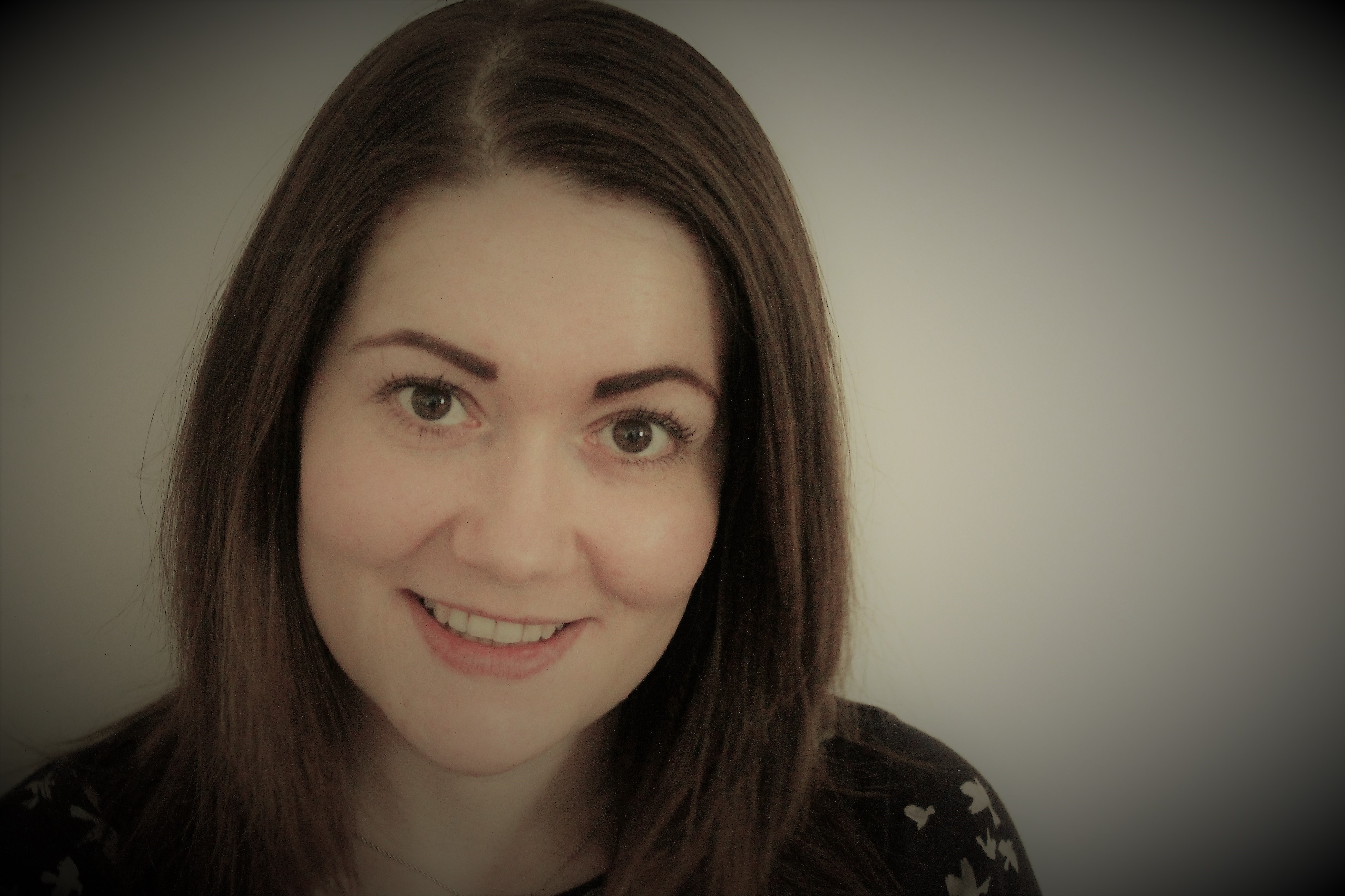
Jodie Baptie, best known as J.V. Baptie, is a Scottish crime writer, presenter and actor. No longer after graduating from a Masters in Creative Writing at Manchester Metropolitan, Jodie attained publishing success with her debut novel, the bestselling thriller, The Forgotten.
The Forgotten follows newly-promoted but not welcome in CID, Detective Sergeant Helen Carter, who is tasked with investigating a murder in an old abandoned picture house. The case takes a chilling turn when the business card of an ex-cop is found at the scene. Carter must piece together the case before the bodies mount up around her, and before the killer strikes closer to home.
After The Forgotten’s release in the past June, bestselling author Frances Di Plino praised the novel calling it “a fast-paced and gritty Tartan Noir and a brilliant debut”.
Among the most fascinating and distinctive elements of The Forgotten is its setting, the Edinburgh of the late seventies; a time during which the city saw a rise in the drug crisis and an alarming amount of regeneration and slum clearances. In this turbulent setting, the central character, Helen Carter shines as a strong, yet flawed female protagonist.
Jodie explained the connection between the setting and how it affects her detective: “My novel explores the difficulties of being a female police officer at the time and life for women in general in the seventies.” Jodie explains, “For example, the struggle to be taken seriously, the sexism, and the long-term impact of crime on people. I tried to write the novel that I’ve been wanting to read. I was bored of the expected detective.”
Achieving success in the publishing industry with The Forgotten was a complex process, which included extensive editing and research.
“I developed my novel through the MA course. Once my first draft was finished I took a break from working on the novel, then edited it again and sent it out to publishers that were open to un-agented manuscripts. I didn’t rush the process. Publishers expect a professionally edited and properly formatted submission, so it’s very important to get the manuscript right first.”
Speaking in detail about her experience as a Manchester Writing School student, Jodie explains how the course helped her to shape the novel.
“I worked with a talented bunch of writers who gave me useful feedback to develop it. The reading novels module allowed me to study a wide range of well-crafted novels and learn from them. We also had regular seminars with industry professionals. Of course, the regular tutorials with my tutor, Catherine Wilcox helped me to learn what worked and what didn’t.
After the positive reception of The Forgotten, Jodie’s second novel, The Departed, will be released in November of this year.
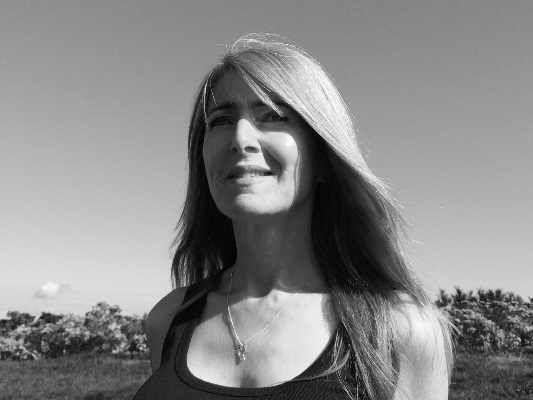
In 2014, Kerry Hadley-Pryce completed an MA in Creative Writing at the Manchester Writing School and was awarded the Michael Smidt Prize for Oustanding Achievement 2013-2014. Her debut novel, The Black Country, was developed while completing this course. The Black Country, where Kerry was born, is an unknown place for many, but recurrent in her novels and short stories. When asked what it meant, she answered:
“For some people (academics, mostly), the Black Country is an ‘imagined community’, which exists only in the minds of residents of the four Metropolitan Boroughs of Dudley, Sandwell, Walsall and Wolverhampton. I really like that definition of what it is. But a simpler way to describe it is that it’s a place – a group of towns in the West Midlands. The story goes that the factories and industry that was once sited there filled the air with black smoke and smog. Queen Victoria travelled through it and was so appalled by the grimness of the landscape that she couldn’t bear to look at it. So they called it the Black Country. I was born there.”
The idea that the place in which Kerry was born doesn’t actually exists, only in people’s minds, implies she doesn’t exist, but this is an idea she likes.
“In all sorts of ways, I live there, I know it well. I know the people and I know the roads and the smells and the sounds. I do a lot of walking and running, especially along the canal network, and I gather a lot of inspiration from that. To me, it’s more than a setting for my work, it’s a sensation of place, people and plot.”
The Black Country is present in her work and second novel, Gamble, which follows Greg Gamble, an everyday man; a husband, a teacher, a father who soon finds himself pushed to the edge. The novel has been described as “Black Country Noir”, however, Kerry resist to categorise it a such.
“Greg Gamble, is a little lost, set adrift. He’s a lot of things, yes, an everyman, actually. I like the idea that he (and the novel generally) can be regarded as unmappable in the same way as the Black Country is.”
The unsettling and ambiguous nature of the novel resists categorisation, although many have dared to describe it as the exploration of the inner life of a middle-aged man with dark twist. Kerry herself admits being drawn to weird, unsettling fiction.
“I live in a place that exists in the minds of people so I suppose it’s only to be expected that the dark side is my favourite. I like the unmappable, the feel of edgelands in writing. I like the peculiar comfort of it, and good dark fiction is difficult to write. I enjoy the challenge of trying to do it well.”
The process of writing her first novel, The Black Country, was vastly different. She explains, “It sprang from a short story I’d written about a man confessing some misdemeanours to his partner, and sort of radiated out from that.”
Kerry wrote the story while completing her masters. “I had the privilege of workshopping parts of it to my classmates. Getting feedback and critiquing on sections of it, and giving feedback to the others was something I wasn’t looking forward to, but it was absolutely vital and a gift, really. The final year of my MA was spent completing The Black Country – editing and so on, with very little feedback from anyone.”
Kerry joined Manchester Writing School as a distance learner.
“I enrolled as a student on the course because I wanted (needed, at the time) an excuse to write. I was a secondary school teacher and in that job, it’s easy to let other things take you away from writing. I needed to be able to make writing a priority.”
The things she recalls enjoying the most were the ‘Chatzy’ sessions (the online messaging forum students attended each week), the texts on the reading lists and friendships built.
Kerry is currently a PhD student at the University of Wolverhampton, researching Psychogeography and Black Country Writing. She is writing a third novel set in the Black Country and is part of a team of researchers into Black Country smells and memory and will be writing a piece to be read at the Being Human Festival in November.
For more information about the Manchester Writing School at Manchester Metropolitan University visit manchesterwritingschool.co.uk and follow @McrWritingSchl on Twitter.

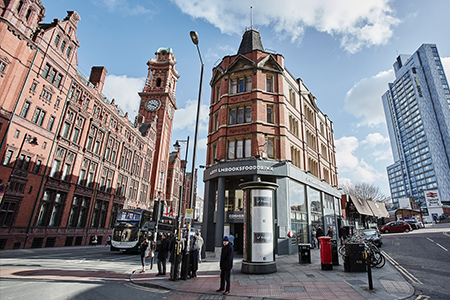




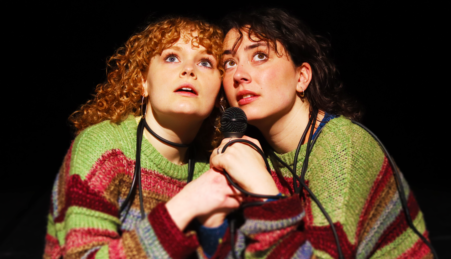
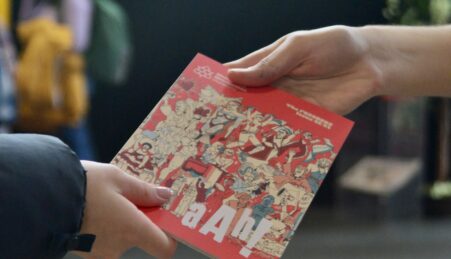
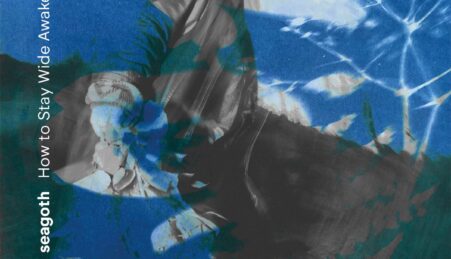
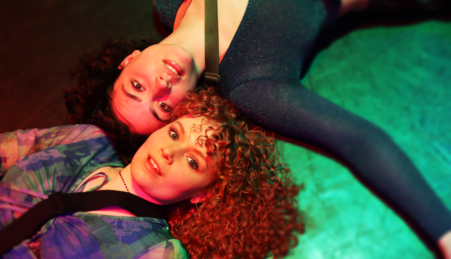
Leave a reply